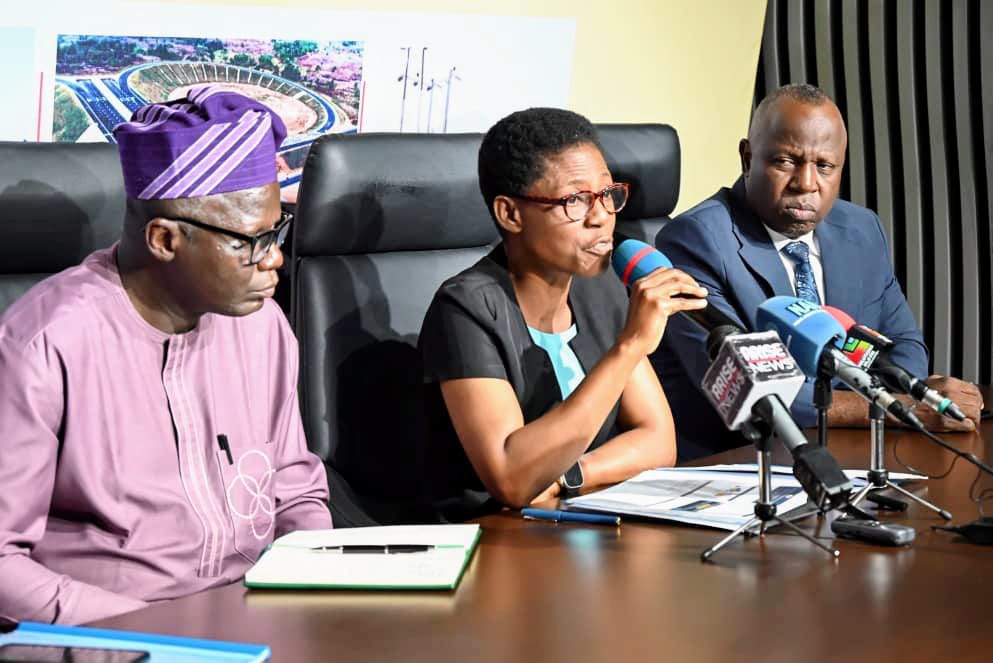Oyo State Commissioner for Health, Dr. Oluwaserimi Ajetunmobi, has said that strategic policies implemented by the Governor ‘Seyi Makinde-led administration have significantly improved the state’s healthcare system.
This was as she stated that the efforts are already helping to mitigate the impact of the ongoing medical brain drain, popularly referred to as the “Japa syndrome.”
Speaking at the Omituntun 2.0 Inter-Ministerial Press Briefing held at the Governor’s Office in Ibadan on Thursday, Dr. Ajetunmobi stated that the reforms have led to tangible improvements in healthcare delivery, infrastructure upgrade, maternal and child health outcomes, and workforce capacity.
According to her, the administration’s robust policies have translated into the reduction of maternal, infant, and under-five mortality rates, alongside the comprehensive renovation and equipping of hundreds of healthcare facilities across the state.
“The policies of Governor Makinde’s administration have improved the quality of life for residents. We have seen a reduction in maternal and child mortality rates and improved access to quality healthcare,” she said.
Other key achievements listed by the Commissioner include: recruitment of over 3,900 healthcare workers, including 332 in secondary health facilities, enhancement of internship quotas for medical graduates, expansion of referral systems between primary, secondary, and tertiary care levels.
Others are implementation of statewide digital health systems and integration of electronic medical records (EMR), resuscitation of oxygen plants and upgrade of critical units, including the Accident & Emergency Unit at LAUTECH Teaching Hospital, Ogbomoso, and successful Pre-TAS and ongoing TAS for filariasis elimination in select LGAs.
Dr. Ajetunmobi also noted the enrolment of over 121,000 residents including pensioners, primary school pupils, and people with disabilities into the Oyo State Health Insurance Scheme, as well as the success of the Omituntun Free Medical Mission which has reached hundreds of thousands across the state.
Highlighting achievements in primary healthcare, she described Oyo State as a national model in transforming basic health services.
“In the area of Primary Health Care, Oyo State has been leading with vision, courage and action,” she said. “While many states struggle with the basics, Oyo is building a sustainable, equitable, and digitally driven system that puts people first.”
She revealed that 212 Primary Health Centres (PHCs) have been renovated and equipped, with 87 more nearing completion. Of these, 106 PHCs are being upgraded to either Level 2 or Level 3 facilities, capable of providing Basic Emergency Obstetric and Newborn Care (BEmONC).
Sixty-six of those PHCs, she added, have been equipped with solar inverters for 24-hour power supply, red brick incinerators, computer tablets for EMR, and advanced medical equipment including oxygen cylinders, pulse oximeters, and nebulizers.
Addressing concerns over the exodus of health workers abroad, Dr. Ajetunmobi explained that the Makinde administration has put measures in place to retain its workforce by improving welfare packages, offering allowances, and ensuring quick replacements for departing staff.
“We have about 260 medical doctors in the state. Initially, we had 350, but due to the Japa syndrome and retirements, the numbers dropped. However, the government has embarked on massive recruitment. In PHC alone, we recruited about 3,933 professionals, and we ensured at least one Medical Officer in every local government,” She stated.
She also mentioned that the state taps into the experience of retired but active consultants who work part-time, contributing to service continuity and mentoring younger professionals.
In addition to doctors employed directly by the state, she pointed out that LAUTECH Teaching Hospital has close to 100 doctors, supported by resident doctors and medical students.
Looking ahead, Dr. Ajetunmobi outlined strategic plans for further strengthening the healthcare system. These include renovation of secondary health facilities through a €55 million grant from the French Government, expansion of digital health infrastructure and electronic health records, strengthening of the referral system between healthcare levels, increased access and equity in healthcare service delivery, and further scaling of workforce recruitment, training, as well as retention initiatives.
In her words: “The Makinde administration is committed to building a resilient health sector that meets the needs of every resident, no matter their location or status,” she concluded.

